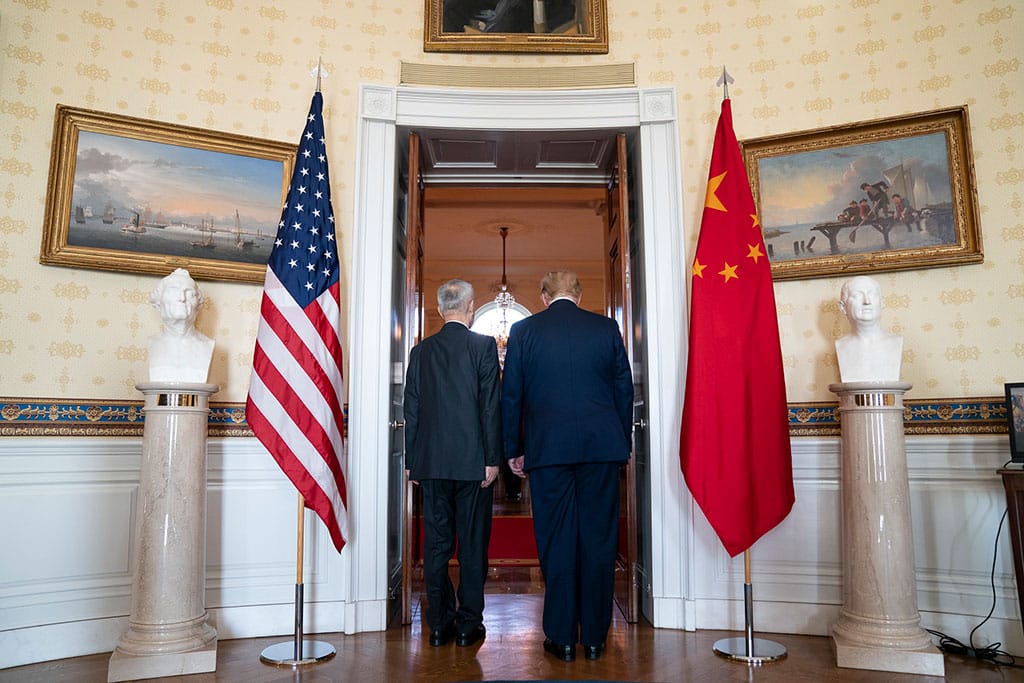
Opinion polls draw a rather bleak picture for Donald Trump who is seeking re-election. As of 24 July, data shows that Joe Biden is ahead in the twelve swing states. This margin exceeds seven points in all of them, except for Arizona and North Carolina. In this context, a change in the White House becomes probable and a Democratic landslide victory is plausible. Just over three months before the elections, Trump is running out of time to turn the tide and has put China in the centre of his election strategy. What are the implications Spain and Europe?
No war-time US president has ever lost a re-election. To Trump’s credit, it must be acknowledged that he has not engaged in a military conflict against Iran, despite favourable circumstances to do so, and that he intended to wage his war against COVID-19 instead of another country. However, Trump’s declaration of war on COVID-19 in mid-March has not reflected in the polls as expected. Americans increasingly rate Trump’s response to COVID-19 negatively and they consider Joe Biden more capable of handling this health crisis than the incumbent president. That is why Trump had to find another war to boost his re-election odds and now he tries to do so by starting a kind of new Cold War with China. This is the very framework in which the speeches delivered by four US senior government officials between 24 June and 23 July 2020 must be interpreted: Secretary of State Mike Pompeo, Attorney General William Barr, FBI Director Christopher Wray and National Security Advisor Robert C. O’Brien.
The vision outlined in these speeches about China’s role within the international community and its impact on US interests is not new one. For instance, it was clearly stated in the National Security Strategy of December 2017. What is happening now is a hardening tone, an instrumentalization of human rights, the exacerbation of the threat perception posed by China and more direct call to the American society and US allies to be more demanding in their relations with this country. This is summarized by Mike Pompeo’s formula to deal with China with a ‘distrust and verify’ approach.
As Stephen Walt warns, the main problem with the China strategy promoted by the Trump administration is that it is Manichean as it identifies the very nature of the opponent as the source of the threat. This could very easily prevent any cooperation with China even on issues of mutual interest. This can translate not only into a more protectionist international economic order, with a loss of purchasing power for billions, but also into the inability of the international community to provide effective responses to global threats such as climate change or pandemics. This scenario would certainly deteriorate Europe’s welfare and security as dramatically shown by COVID-19. This, assuming the growing tension between the two countries does not end up in an armed conflict, whose escalation would have tragic consequences for mankind.
Besides, it is highly doubtful that the emphasis on promoting political change processes in China from the outside would achieve greater openness and political liberalization in this country. Rather, US foreign policy double standards in the promotion of human rights, based on their national interests, are so obvious to the Chinese population that they foster the consolidation of the regime. As a result, the instrumentalization of human rights and Chinese dissent by the Trump administration will likely make the work of the Chinese Communist Party easier to present itself as the champion of the Chinese nation against foreign interference and to discredit liberal democracy as an unsuitable form of government for China.
The United States and its European allies must address normative issues in their relations with China, not only from a moralist perspective, but also by explicitly linking them to economic and security interests on specific areas such as the defence of privacy and intellectual property rights. This element of the Chinese strategy of the Trump administration, summarized in a call for reciprocity, transparency and accountability in the relations with China, does fit in very well with the position of the EU. Therefore it would be highly desirable that this component becomes one of the pillars of the dialogue on China the US and the European Union agreed to establish on 25 June. It would also be welcomed that other actors willing to defend a rules-based liberal international order could join these demands. This should be possible regardless of who is the next President of the United States, although the two candidates do not seem equally capable of achieving it.
As John Ikenberry has recently argued, we are facing a situation that requires more internationalism and multilateralism from the liberal international order rather than isolationism and unilateralism. The way President Trump has engaged with his allies, multilateral organizations and international law during his mandate suggests that Joe Biden’s victory would favour a more effective response to the challenges China poses on both sides of the Atlantic. Obviously, Donald Trump hopes that his fellow citizens will not share this analysis. Otherwise, he would not have targeted Beijing for his war.


